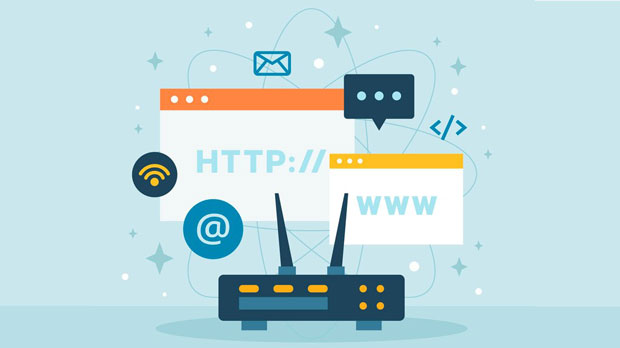In today’s rapidly expanding global e-commerce market, cross-border trade has become an essential aspect for businesses seeking to tap into new markets. However, expanding beyond local borders comes with several unique challenges, especially when it comes to data privacy, security, and accessing content in foreign regions. This is where enterprise-level proxies play a crucial role. By offering secure, reliable, and scalable solutions, these proxies enable businesses to access international markets with greater efficiency and less risk. This article delves into the significance of enterprise-level proxies for cross-border e-commerce businesses, exploring how they help overcome geographic restrictions, enhance security, and improve customer experience. Understanding the Importance of Proxies in Cross-Border E-commerceCross-border e-commerce allows businesses to sell products or services to international customers. However, this global expansion comes with a set of challenges, particularly when it comes to navigating different digital environments, adhering to various legal regulations, and accessing local content. A proxy server acts as an intermediary between the client and the internet, allowing businesses to route their internet traffic through different geographical locations. For cross-border e-commerce businesses, proxies are an indispensable tool that enables access to international content, improves website performance, and ensures a secure environment for both businesses and customers.Overcoming Geographic Restrictions and CensorshipOne of the most significant challenges for cross-border e-commerce businesses is accessing international websites and content that may be restricted due to geographic location. Many websites, including e-commerce platforms, government portals, and social media networks, apply geo-blocking mechanisms that limit access based on the user’s physical location. These restrictions can prevent businesses from conducting market research, evaluating competitors, or even managing their digital presence in certain regions.Enterprise-level proxies provide a solution by allowing businesses to mask their IP addresses and appear as if they are browsing from a different country. This bypasses geo-blocking systems, enabling businesses to access restricted websites, gather valuable data, and perform research in foreign markets without geographical limitations. Whether it's accessing product listings, tracking pricing trends, or understanding consumer behavior, proxies help businesses stay competitive in international markets.Enhancing Data Security and PrivacyData security and privacy are critical concerns in cross-border e-commerce. With the rise of cyber threats and the growing complexity of data protection regulations, ensuring a secure digital environment for both businesses and consumers has never been more important. Enterprise-level proxies provide an extra layer of security by masking the company’s IP address and preventing direct access to sensitive business data.Proxies also help prevent malicious attacks, such as Distributed Denial of Service (DDoS) attacks, by distributing traffic across different servers, thus minimizing the risk of overload and ensuring website uptime. Additionally, proxies can secure online transactions by encrypting traffic, reducing the risk of data breaches and fraudulent activities. For businesses handling sensitive customer data, such as payment information and personal details, proxies offer a vital safeguard to protect privacy and comply with international data protection laws.Improving Website Performance and SpeedWebsite speed and performance are critical factors in delivering a positive user experience, especially in the context of e-commerce. Slow loading times or frequent server downtimes can lead to frustrated customers, resulting in abandoned carts and lost sales. This is particularly relevant for cross-border businesses, where latency can be an issue due to the distance between the customer and the website’s server.Enterprise-level proxies can enhance website performance by caching content and reducing the time it takes to load pages. By distributing traffic across multiple servers in different geographic locations, proxies ensure faster load times and a smoother browsing experience for international customers. In turn, businesses benefit from improved customer satisfaction, higher conversion rates, and better retention, all of which are vital for success in the competitive global e-commerce market.Facilitating Seamless Market ResearchMarket research is a fundamental part of developing a successful strategy for cross-border e-commerce businesses. Understanding local market trends, consumer behavior, and competitor strategies helps businesses make informed decisions and adjust their offerings to meet the demands of different regions. However, accessing reliable and up-to-date market data can be challenging due to regional restrictions, website blocking, and language barriers.With enterprise-level proxies, businesses can easily access regional websites and services, allowing them to gather insights from a variety of international sources. Whether it's monitoring competitors’ prices, analyzing local product demand, or assessing marketing campaigns, proxies enable businesses to collect the data they need to stay ahead of the competition and tailor their strategies for different markets.Ensuring Compliance with Local RegulationsCross-border e-commerce businesses must navigate a complex web of local regulations, including those related to taxation, consumer protection, and digital privacy. Failure to comply with these regulations can lead to fines, legal disputes, and damage to a company’s reputation. In many countries, businesses must also adhere to specific regional laws regarding data handling and internet usage.Enterprise-level proxies can help businesses comply with local regulations by enabling them to simulate local IP addresses. This allows businesses to better understand regional legal frameworks and ensure that their operations align with the requirements of each market. Proxies also help businesses avoid penalties related to data privacy laws by securing transactions and maintaining compliance with local cybersecurity standards.Optimizing Customer Experience Across BordersIn the world of cross-border e-commerce, customer experience is one of the most important factors in driving success. International customers expect fast, secure, and seamless shopping experiences, and businesses must be able to deliver on these expectations to remain competitive. Proxies play a crucial role in enhancing customer experience by providing access to local content, improving website speed, and ensuring security during online transactions.By using enterprise-level proxies, businesses can optimize their websites for different regions, ensuring that customers receive relevant content, localized pricing, and tailored recommendations. Proxies also allow businesses to manage local payment systems and offer customer support in different languages, all of which contribute to a smoother shopping experience for international customers.Conclusion: The Vital Role of Proxies in Global E-commerceEnterprise-level proxies are not just a tool for bypassing geographic restrictions; they are an essential component of a successful cross-border e-commerce strategy. By providing secure, fast, and reliable access to international markets, proxies help businesses improve performance, enhance security, and offer an optimized customer experience. As the global e-commerce landscape continues to evolve, the importance of proxies in ensuring seamless operations, legal compliance, and data security will only continue to grow. For businesses looking to expand their reach and thrive in the competitive world of cross-border e-commerce, leveraging enterprise-level proxies is no longer an option but a necessity.
Apr 08, 2025
![arrow]()




























































